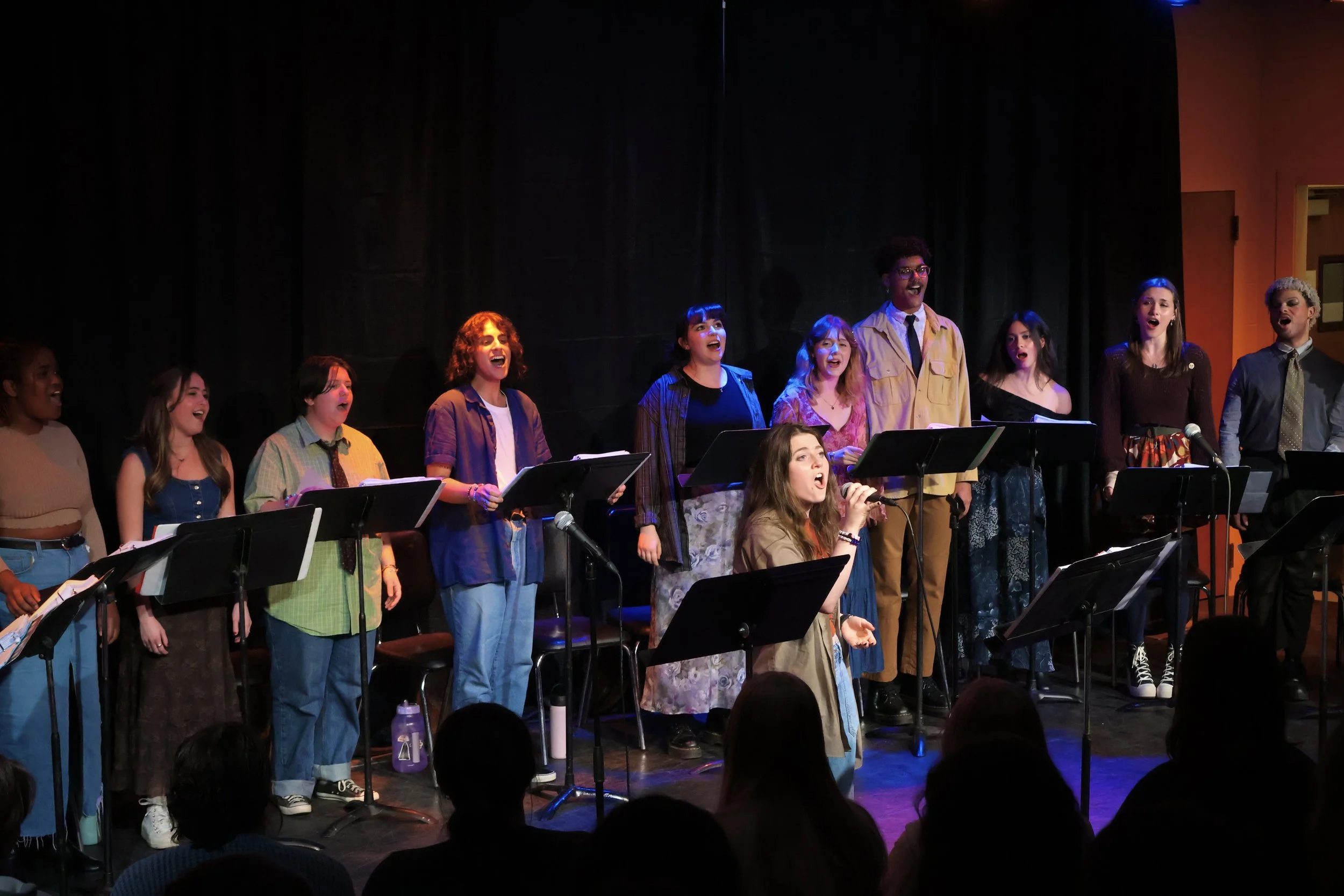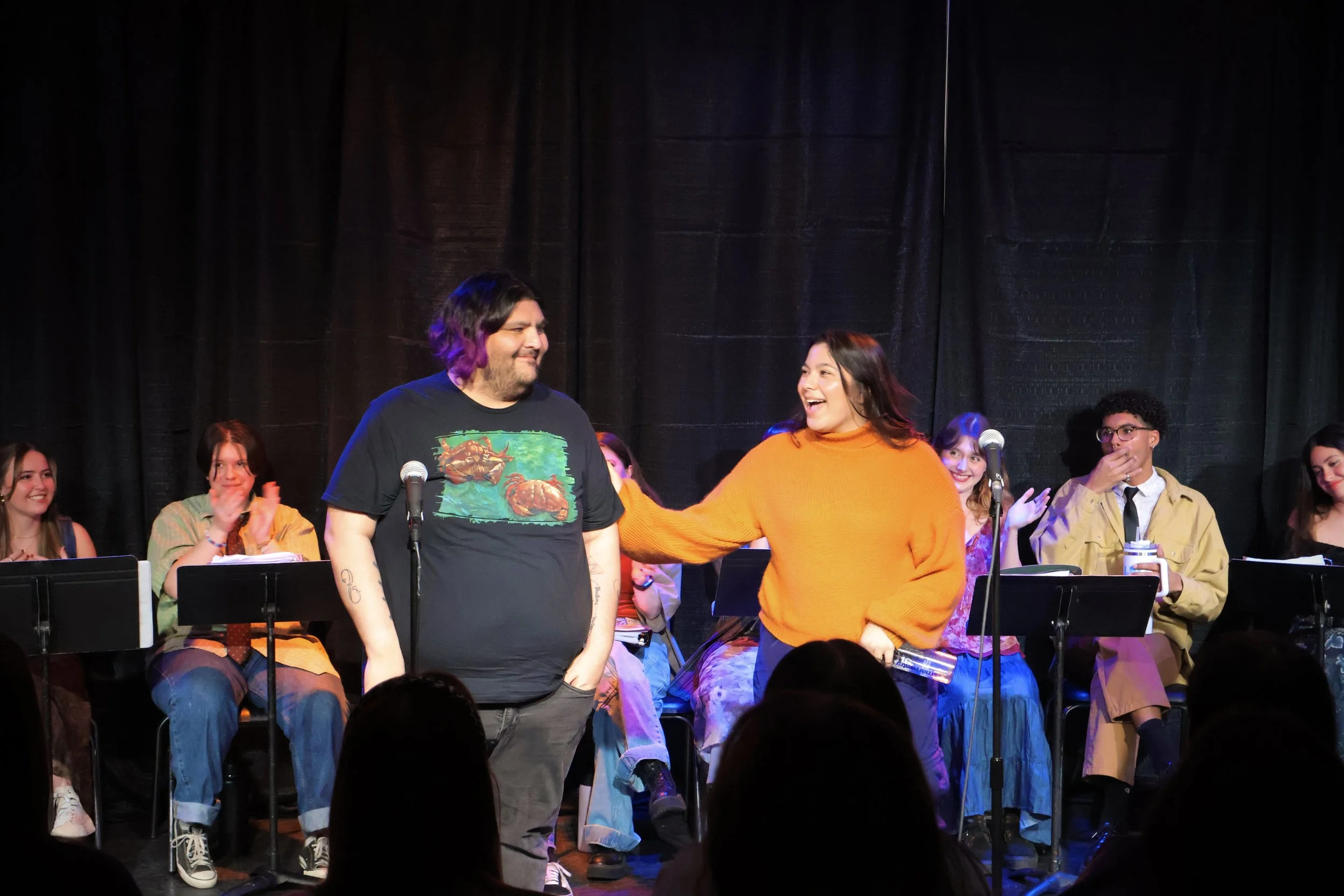#25 - Vincent Workshop at LIU
There’s a particular moment, when you’re sitting in the dark of a theater, surrounded by the collective hush of an expectant audience, when you realize that the story you’ve labored over, the notes you’ve painstakingly strung together, are no longer yours. This is the alchemy of theater: words and music, carefully laid down on the page, spring to life not through your hands, but through the voices and bodies of those who inhabit the stage. When those performers are extraordinary, when they are artists in their own right, it is a mixture of pride, terror, and an almost unbearable thrill.
Writing a musical is, for me, a solitary and agonizing process. You wrangle with a phrase for days, puzzle over a rhyme that will carry just the right weight, or hunt for a chord progression that speaks not just to the moment, but to something ineffable—an emotion too elusive for mere words to capture. You build a scaffolding of logic and feeling, structure and spontaneity, and then you hand it over. This is where the magic happens, and I use "magic" reluctantly, as someone who inwardly prefers precision to mystery. (As opposed to how I describe my philosophy on playing music.) But there’s no better word to describe what the right actors do to your work.
They find things. Things you didn’t even know were there. A pause before a word, a turn of the head, a slight hesitation before a note, can transform a lyric you thought you understood into something profound, alien, and startlingly new. Take “More Earth Than Sea,” for example. On the page, it’s a song about a long lost love, a journal page of a time long past. But give it to someone like Kayla Joya or Grace McNally, and it becomes a plea, a demand, a revelation. They bring their own histories, their voices, their physicality to the moment, and suddenly the song grows larger than the sum of its parts. Larger, even, than you.
It is humbling. Because as much as you’d like to think you’ve crafted something perfect and self-sufficient, the truth is, a musical is incomplete until it is performed. It is not a finished work of art but a blueprint, waiting for the collaboration of actors, directors, designers, and musicians to bring it into three dimensions. When the actors are extraordinary, they make you look far cleverer than you are. They take your blueprints and build a cathedral.
Before that magic can even begin, you need someone who truly sees you—who understands your vision as intimately as you do. Someone who hears the rhythm behind the words, who senses the heartbeat in every line. Someone with empathy, brilliance, and an imagination that expands your own. But just as important, someone with the intelligence and strength to tell you, without hesitation, when you’ve gone astray.
I’ve been fortunate—no, blessed (yeah…yeah I said it)—that for me, that person is not just a collaborator but one of my absolute closest friends. She’s incisive, uproariously funny, endlessly perceptive, and so fiercely talented it makes your head spin. And at the end of the day, as the curtain falls, I couldn’t be more grateful or more proud to have her standing beside me.
There is a helplessness to watching your work in performance.
The words, the music—they’re out there now, exposed, interpreted, altered in ways both intentional and incidental. Not every choice an actor makes will be one you agree with, and not every note will land as you imagined. But this, too, is part of the process, part of the beauty. Theater is a living art form, ephemeral by nature. Once it leaves your hands, it becomes a conversation, not a monologue. And as uncomfortable as it can be to relinquish control, that very discomfort is what allows the work to breathe and grow. These are moments when the work transcends you, when it belongs wholly to the performer and, by extension, to the audience.
And that’s the ultimate reward, isn’t it? To sit in the dark, surrounded by strangers, and feel a collective heartbeat—yours, theirs, the actors’, the musicians’. To know that something you began in solitude has become a shared experience, alive and fleeting. You leave the theater knowing that the performance will never exist again in exactly the same way, that it was singular, unrepeatable. That is what keeps me writing, despite the agony, despite the doubt. The chance to hand over the work to those who make it sing.
For now, the ball is back in my court. Monday’s performance wasn’t just a presentation—it was a dialogue, a revelation of what works, what doesn’t, and what the story still needs to come alive in the way I envision. Armed with that response, I return to the work, reshaping, refining, and striving once again to tell the story that’s been living in my head.
Already, there’s at least one new song nearly complete, and the beginnings of another taking shape. There’s even the possibility of a character shift in one song—a change that might bring a moment into sharper focus, closer to what it’s been yearning to say all along. The process is ongoing, fluid, and maddeningly unpredictable. But that’s the beauty of it, isn’t it? Every revision is a step closer to the truth of the piece, to making it sing in exactly the way it’s meant to.
Will any of it work?
We’ll see in February, when the whole terrifying, amazing process begins again.



